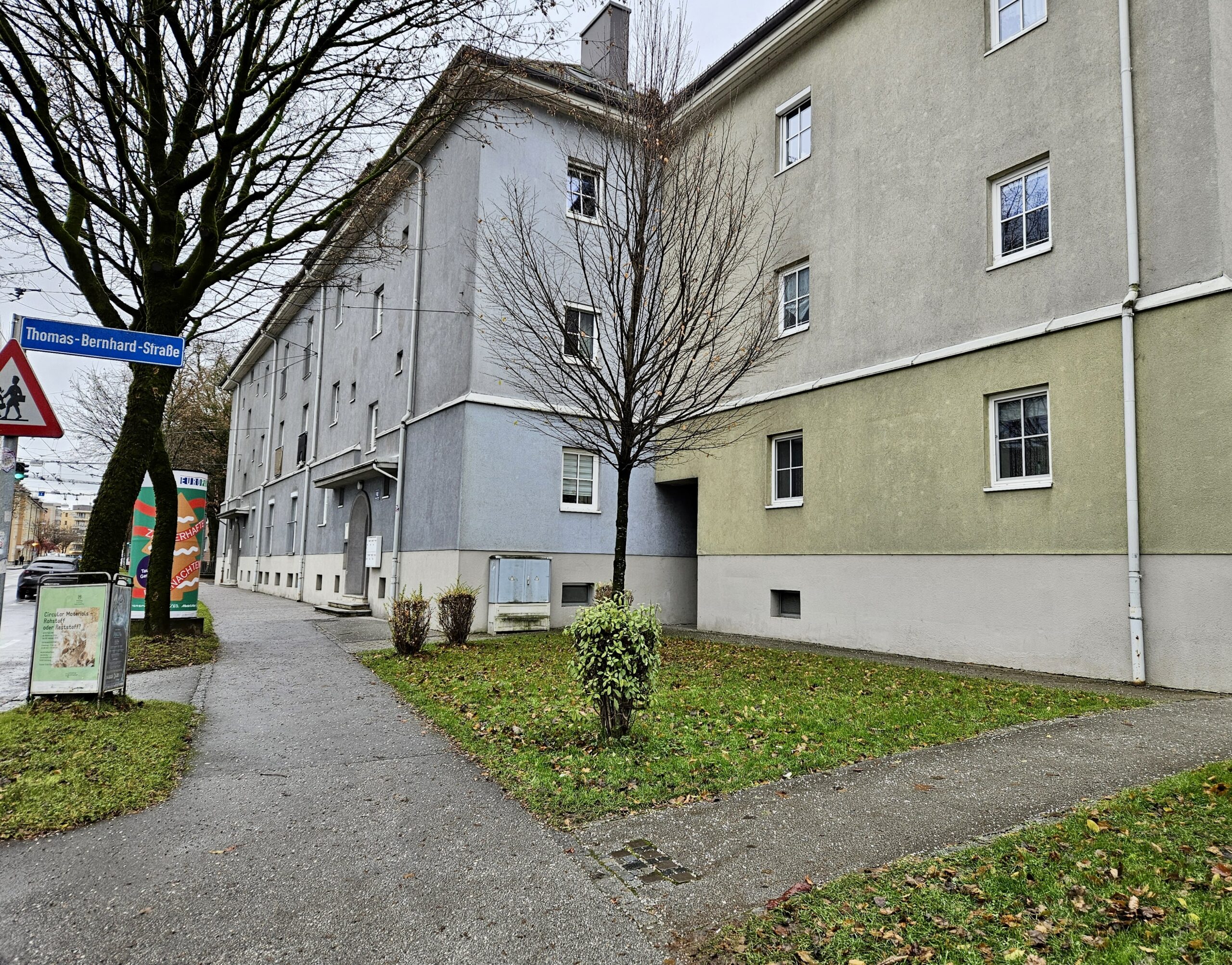Josef WINTERSTELLER was born in Oberalm bei Hallein (16 km south of Salzburg city) on August 11, 1910 and was baptized in the Roman Catholic Church. He was the only child of Rosa and Matthias Wintersteller.
Josef’s father was a laborer without any regular employment, a so-called day laborer, who served on the Italian front during WWI. In September 1917 Mathais went missing and after the war he was officially declared dead. Josef’s widowed mother remarried and settled in the city of Salzburg.
Josef was unable to learn a skilled trade and startd working as a laborer in Salzburg at age 15, changing his workplace and his residence frequently – mostly living in barracks. In 1933 he married a fellow laborer in Salzburg, and the couple had five children, the youngest being born in 1940. The working class family lived in the Scherzhauserfeld settlement, a municipal housing project of the city of Salzburg.
Their lives together didn’t last as Josef WINTERSTELLER was drafted into the German army in December 1940 and from October 1941he was in service on the Eastern Front. At the end of April 1942 he was granted three weeks home leave, after which he failed to return to his unit in Russia. He was neither a Nazi nor an opponent of the regime, but he was also no hero.
He simply didn’t want to be killed like his father in a war, and preferred to live and be with his children, But that simple wish was denied him. On June 22, 1942, some four weeks after the end of his leave, he was arrested at his family home in Salzburg.
On August 6, 1942 Josef WINTERSTELLER stood before a 188th division Court Martial in Salzburg. »In the name of the German People« the court-martial convicted him of being »absent from his unit without leave« and sentenced him to 15 months imprisonment.
But rather than sending him to a safe prison, the army »paroled« him to the front, presumably back to the east. We don’t know precisely what sort of punishment detail he was assigned to, building bunkers and fortifications or clearing mines and recovering bodies on the battlefields.
But like his father in the First World War, Josef WINTERSTELLER was counted among the missing after the end of the Second World War – and also like his father Matthias, he was then legally declared dead.
Recent research has concluded that the 33 year Josef WINTERSTELLER was killed in Danzig [Polish Gdansk] on the Baltic coast on July 1, 1944.
The circumstances of his death remain unknown. All we know is that he left a wife and five children behind.
1 Court-martial of Division 188 in Salzburg, Kajetanerplatz 2: Kriegsgerichtsrat Dr. Franz Pühringer as prosecutor and Kriegsgerichtsrat Dr. Heinrich Pitra as judge
Quellen
- Court-martial verdict of the 188th Division
- Archives if the Salzburg Archdiocese
- Salzburg city and state archives
Research: Esche Schörghofer
Translation: Stan Nadel
Stumbling Stone
Laid 21.09.2019 at Salzburg, Thomas-Bernhard-Straße 1





